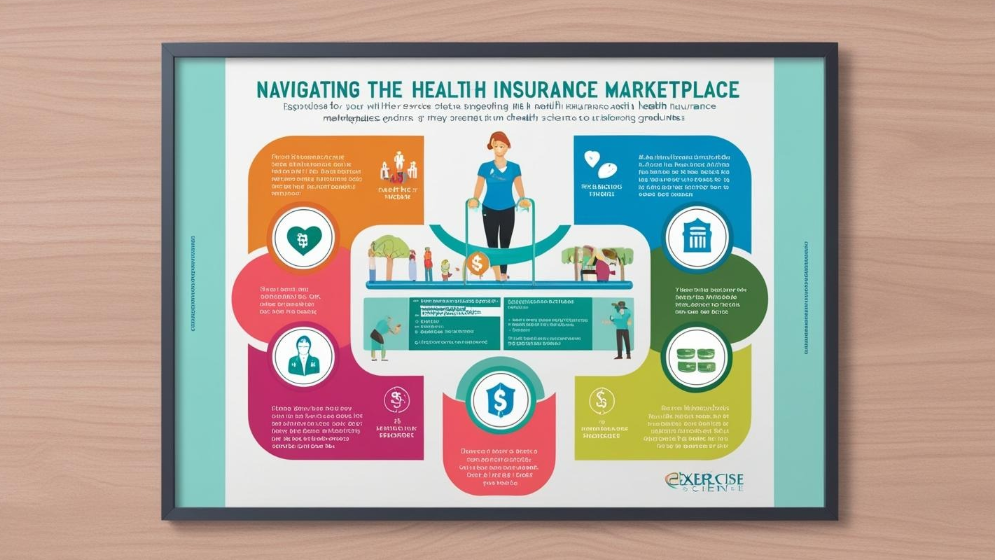
Introduction
As an exercise science graduate, you’re ready to boost health outcomes—but what about your own? Navigating the health insurance marketplace can feel like a maze, especially for professionals entering roles like personal training, corporate wellness, or clinical rehabilitation. Whether you’re landing your first job, freelancing, or pursuing grad school, this guide decodes insurance options, enrollment tips, and how to choose coverage that fits your career path.
Why Health Insurance Matters for Exercise Science Professionals
Your career impacts others’ health, but safeguarding your own is equally critical. From injury coverage during hands-on training to mental health support in high-stress roles, insurance ensures you’re protected. Plus, many employers—like hospitals or gyms—require proof of coverage. Here’s what to prioritize:
- Accident Coverage: Vital for trainers or physiologists working with equipment or clients.
- Mental Health Benefits: Burnout is real in wellness roles; therapy and counseling access is key.
- Preventive Care: Annual physicals, vaccinations, and screenings keep you in top shape to serve others.
Understanding Your Options
Most full-time roles (e.g., corporate wellness coordinators, clinical exercise physiologists) offer group health insurance.
- Pros: Lower premiums, employer contributions, and access to dental/vision.
- Cons: Limited flexibility; coverage ends if you leave the job.
Tip: Ask about HSA (Health Savings Account) options to save pre-tax dollars for medical expenses.
Freelance or Contract Work? Explore the Marketplace
Personal trainers, fitness influencers, or part-time coaches often need to self-insure.
- ACA (Affordable Care Act) Plans: Browse Healthcare.gov during Open Enrollment (Nov 1–Jan 15).
- Bronze Plans: Low premiums, high deductibles (good for rare doctor visits).
- Gold/Platinum Plans: Higher premiums but better coverage (ideal for chronic condition management).
- Medicaid: Qualify if your income falls below state thresholds (varies by location).
Case Study: Jake, a freelance sports nutritionist, saved 40% on premiums by choosing an ACA Silver Plan with income-based subsidies.
Stay on a Parent’s Plan
If you’re under 26, you can remain on a parent’s policy—even if you’re employed, married, or living independently.
Professional Organizations
Groups like ACSM (American College of Sports Medicine) or NSCA (National Strength and Conditioning Association) often offer member-exclusive group plans.
Key Terms to Know
- Premium: Monthly payment for insurance.
- Deductible: Amount you pay out-of-pocket before insurance kicks in.
- Copay: Fixed fee for doctor visits or prescriptions.
- Network: Doctors/hospitals covered by your plan. Always check if your preferred providers are in-network!
Enrollment Checklist for Exercise Science Grads
- Assess Your Needs: Do you need frequent physical therapy? Mental health support?
- Compare Plans: Use Healthcare.gov’s tool or consult a licensed broker.
- Check Subsidy Eligibility: Income-based discounts can slash costs.
- Review Deadlines: Miss Open Enrollment? Qualify for Special Enrollment via life events (e.g., job loss, marriage).
- Ask About Telehealth: Virtual care is a game-changer for busy professionals.
Why Preventive Care is Non-Negotiable
Exercise science careers demand peak physical and mental stamina. Leverage insurance perks like:
- Annual Physicals: Early detection of issues like hypertension.
- Vaccinations: Stay updated on flu, COVID, or travel-related shots.
- Mental Health Visits: Many plans now cover therapy apps (e.g., Talkspace) or stress management programs.
Stat Alert: 72% of uninsured adults skip preventive care due to cost—don’t let that be you.
The Freelancer’s Edge: Health Insurance Tax Deductions
Self-employed? You can deduct 100% of premiums from your taxable income. Track expenses and consult a tax pro to maximize savings.
Final Tips
- Network Matters: Ensure local clinics or specialists you trust are covered.
- Emergency Coverage: Verify ER and urgent care costs.
- Future-Proofing: If planning grad school (e.g., physical therapy), check student health plans.

